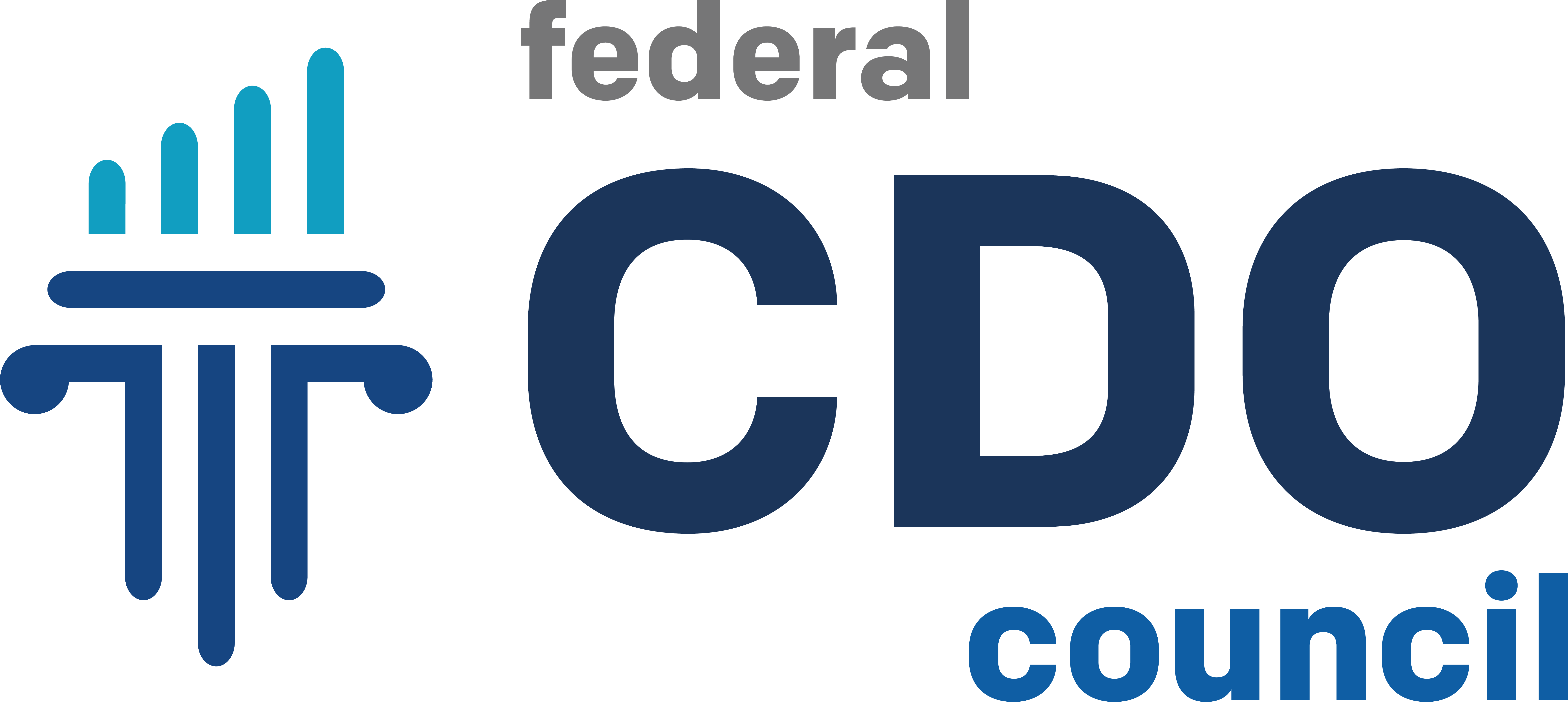Overview
While there are many roles in the Federal Government that relate to data management, since 2018, Chief Data Officers (CDOs) have emerged to lead organizational development of processes to leverage the power of data. CDOs enable data driven decision-making in a variety of ways, from providing and leveraging centralized agency analytics capacity to creating tools and platforms that enable self-service across their agencies and for the public. CDOs serve in a central leadership position, with visibility into relevant agency operations, and are positioned highly enough to regularly engage with other agency leadership,including the head of the agency.
The Foundations for Evidence-Based Policymaking Act of 2018 (P.L. 115-435) 44 USC § 3520A formally establishes within agencies the position of the CDO, who, through the functions described below, and in coordination with other agency leaders, will ensure the successful execution of the agency's data management responsibilities. The Evidence Act also requires that CDOs be a nonpolitical appointee employee in the agency.
Responsibilities
Their responsibilities include:
- Managing data at every stage of the data lifecycle by establishing effective procedures, standards, and controls to ensure quality, accuracy, access, and protection of data, as well as managing information resources,
- Coordinating with officials in the agency responsible for using, protecting, disseminating, and generating data to ensure that the data needs of the agency are met,
- Managing data assets of the agency,
- Ensuring that agency data conforms with data management best practices,
- Engaging agency employees, the public, and contractors in using public data assets and encouraging collaborative approaches on improving data use,
- Supporting the Performance Improvement Officer and the Evaluation Officer of the agency in identifying and obtaining data to carry out necessary functions,
- Reviewing the impact of the infrastructure of the agency on data asset accessibility and coordinating with the Chief Information Officer of the agency to improve infrastructure to reduce barriers that inhibit data asset accessibility,
- Maximizing the use of data in the agency,
- Identifying points of contact for roles and responsibilities related to open data use and implementation, and
- Serving as chair of the agency’s data governance board and as the agency liaison to other agencies and the Office of Management and Budget on the best way to use existing agency data for statistical purposes
Skills
Federal CDOs come into their role needing a wide array of skills. They must have experience in data governance (including creation, application, and maintenance of data standards) and implementing data policies and strategies. They also need to understand responsibilities related to open data use and implementation. Finally, CDOs must be data evangelists responsible for changing agency culture to use data to solve real problems and to adopt enterprise data standards that improve overall data quality as a by-product.
Abilities
According to federal CDOs, persons in this position must have the ability to:
- Communicate and translate complex concepts to all audiences,
- Understand and prioritize organizational business challenges and deliver value in these areas,
- Build and lead teams across the organization,
- Remain goal oriented and focused on reaching specified objectives by establishing structure and managing towards outcomes,
- Adapt and deal with different issues of importance to different customers,
- Influence others to realize the mission value of data, and
- Manage change within organizations

